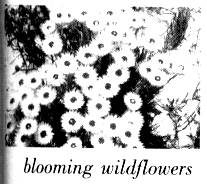题目内容
.
I travel a lot, and I find out different “styles” of directions every time I ask “How can I get to the post office?”
Foreign tourists are often confused(困惑) in Japan because most streets there don’t have names; in Japan, people use landmarks(地标) in their directions instead of street names. For example, the Japanese will say to travelers, “Go straight down to the corner. Turn left at the big hotel and go past a fruit market. The post office is across from the bus stop.”
In the countryside of the American Midwest, there are not usually many landmarks. There are no mountains, so the land is very flat; in many places there are no towns or buildings within miles. Instead of landmarks, people will tell you directions and distances. In Kansas or Iowa, for example, people will say, “Go north two miles. Turn east, and then go another mile.”
People in Los Angeles, California, have no idea of distance on the map; they measure distance in time, not miles. “How far away is the post office?” you ask. “Oh,” they answer, “it’s about five minutes from here.” You say, “Yes, but how many miles away is it?” They don’t know.
It’s true that a person doesn’t know the answer to your question sometimes. What happens in such a situation? A New Yorker might say, “Sorry, I have no idea.” But in Yucatan, Mexico, no one answers “I don’t know.” People in Yucatan believe that “I don’t know” is impolite. They usually give an answer, often a wrong one. A tourist can get very, very lost in Yucatan!
67. When a tourist asks the Japanese the way to a certain place, they usually ______.
A. describe the place carefully B. show him a map of the place
C. tell him the names of the streets D. refer to recognizable buildings and places
68. What is the place where people measure distance in time?
A. New York.. B. Los Angeles. C. Kansas. D. Iowa.
69. People in Yucatan may give a tourist a wrong answer ______.
A. in order to save time B. because of honesty
C. so as to be polite D. for fun
70. What can we infer from the text?
A. It’s important for travelers to understand cultural differences.
B. It’s useful for travelers to know how to ask the way properly.
C. People have similar understandings of politeness.
D. New Yorkers are generally friendly to visitors.
67—70 DBCA

Each spring brings a new wildflower blooming in the fields along the highway I travel daily to work.
There is one particular blue flower that has always caught my eye. I've noticed that it blooms only in the morning hours. The afternoon sun is too warm for it. Every day each year for about two weeks, I see those beautiful flowers.
This spring, I started a wildflower garden in my yard. I can look out of the kitchen window while doing the dishes and see the flowers. I've often thought that those lovely blue flowers from the fields would look great in that bed alongside other wildflowers.
Every day I drove past the flowers, thinking, "I'll stop on my way home and dig them." "Gee, I don't want to get my good clothes dirty…" Whatever the reason, I never stopped to dig them. My husband even gave me a tool one year for that expressed purpose.
One day on my way home from work, I was saddened to see that the highway department had cleared up the fields and the pretty blue flowers were gone. I thought to myself, "Way to go, you waited too long. You should have done it when you first saw them blooming this spring. "
A week ago we were shocked and saddened to learn that my oldest sister-in-law has a cancer. She is 20 years older than my husband and unfortunately, because of age and distance, we haven't been as close as we all would have liked.
I couldn't help but see the connection between the pretty blue flowers and the relationship between my husband's sister and us. I do believe that God has given us some time left to plant some wonderful memories that will bloom every year for us.
And yes, if I see the blue flowers again, I'm sure I'll stop and transplant them to my wildflower garden.
【小题1】How long might the blue flower bloom in spring?
| A.About two weeks. | B.The whole season. |
| C.About one week. | D.The whole day. |
| A.Across the fields. | B.Along the highway. |
| C.In the garden. | D.Outside the yard. |
| A.She is seriously ill. |
| B.She is twenty years old. |
| C.She lives far away from the writer. |
| D.She is not in close touch with the writer. |
| A.Value now and don't lose chances. |
| B.Visit our relatives only after they get ill. |
| C.Refresh our wonderful moments every year. |
| D.Plant flowers and don't enjoy them in the field. |